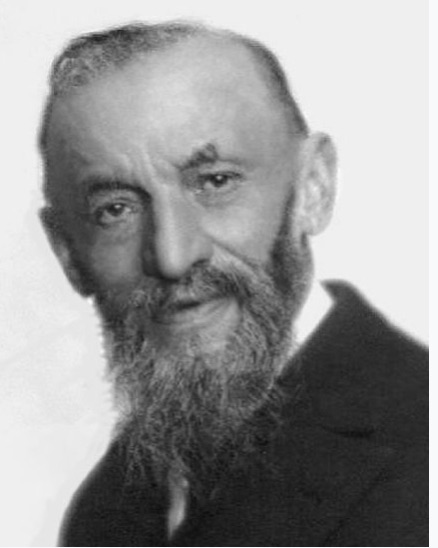
Giuseppe Peano was born on August 27, 1858 in Spinetta Marengo, a town in what is now Italy. He showed an early aptitude for mathematics and was influenced by his father, who was a schoolteacher. Giuseppi studied at the University of Turin, where he graduated with high honors, receiving a degree in mathematics in 1880.
One of Peano’s most notable contributions came in 1889 with his formulation of the Peano axioms, a set of axioms for generating the natural numbers. These axioms provided a rigorous foundation for the study of number theory and arithmetic, in the way that Euclid’s axioms provided the deductive foundation for geometry. The Peano axioms also laid the groundwork for later developments in set theory and mathematical logic. In 1890, he published his famous space-filling curve, demonstrating that the unit interval and the unit square have the same cardinality. This curve anticipated a class of sets that mathematicians now call fractals.
A pioneer in the field of symbolic logic, Peano introduced a notation for symbolic logic, including the symbols for the union and intersections of sets, greatly improving clarity and precision in mathematical reasoning. His work in this area was instrumental in the development of modern mathematical logic and its later applications in computer science.
Peano also made contributions to set theory. His work included the development of a theory of sets based on the structure of his axioms for the natural numbers. While his set theory didn’t gain as much prominence as some other approaches, his contributions were important in the broader context of the development of set theory. Peano wrote over 200 papers and books on mathematics and logic throughout his career. He founded the journal “Rivista di Matematica” in 1891.
Aside from his mathematical contributions, Peano was also an advocate for educational reform. He believed in a more intuitive and interactive approach to teaching mathematics, emphasizing problem-solving and critical thinking over rote memorization.
Giuseppi Peano was employed by Turin University from his graduation in 1880 until he died of a heart attack on April 20, 1932. During a tenure that spanned more than a half century, he created a legacy that places him among the most influential mathematicians and logicians of the late 19th and early 20th centuries.. The Peano axioms are an essential part of modern mathematics, and his notation for symbolic logic has influenced how mathematics is presented and taught. His ideas have had a lasting impact on fields ranging from mathematical logic and set theory to computer science and education. Acknowledging that the fundamental entities of any deductive science, including mathematics, must be left undefined, he stated:
In every science, after having analyzed the ideas expressing the more complicated by means of the more simple, one finds a certain number that can be reduced among them, and that one can define no further. These are the primitive ideas of the science; it is necessary to acquire them through experience or through induction; it is impossible to explain them by deduction.
